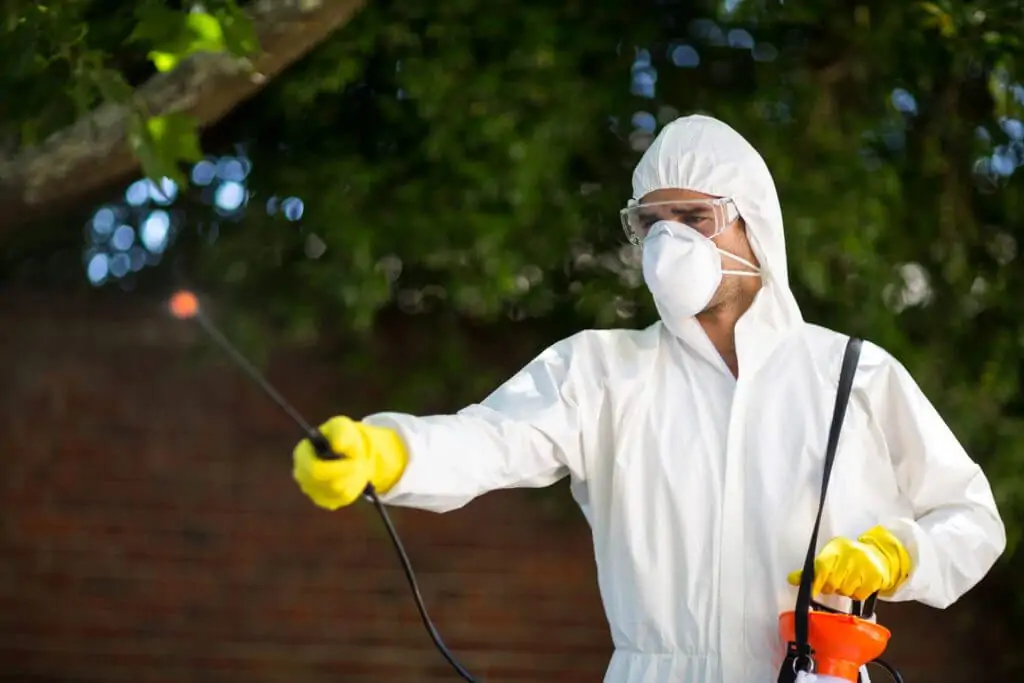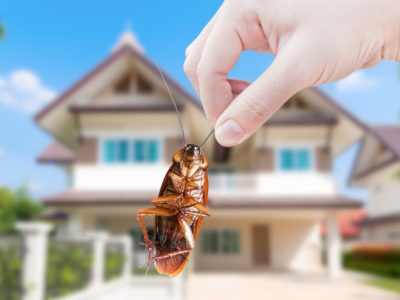Comprehending the Various Strategies to Insect Control: A Comprehensive Overview

All-natural Parasite Control Methods
Utilizing green strategies such as companion growing and organic insect control is crucial for successfully managing insects in farming settings. Buddy planting involves expanding various crops in proximity to discourage insects, improve nutrient uptake, and enhance general crop health and wellness. Growing marigolds together with tomatoes can assist ward off nematodes. Likewise, intercropping maize with vegetables can disrupt the breeding patterns of pests like corn borers.
Biological pest control entails presenting all-natural killers or pathogens to control pest populaces. Ladybugs, as an example, eat aphids, managing their numbers without the requirement for chemical pesticides. Another instance is the use of Bacillus thuringiensis (Bt), a microorganism that targets certain insect pests while being safe to humans, pets, and beneficial insects.
These environment-friendly methods not just decrease the dependence on synthetic chemicals but additionally assist maintain biodiversity and soil wellness. By integrating all-natural insect control strategies into farming methods, farmers can attain sustainable bug administration while minimizing negative influence on the environment.

Chemical Pest Control Solutions
In addition to all-natural pest control techniques, the application of chemical pest control options plays a substantial role in successfully taking care of pest populations in farming settings. Chemical pest control options are created to target specific bugs that might cause comprehensive damages to crops. These services commonly contain synthetic chemicals that are designed to remove pests rapidly and successfully.
Among the key advantages of chemical bug control solutions is their efficiency in regulating pest invasions on a large range. Farmers can use these services using numerous methods such as splashing, fumigation, or seed treatment to shield their plants from damaging insects, weeds, and illness. In addition, chemical insect control services are relatively easy to apply and can provide quick outcomes, aiding farmers guard their returns and lessen financial losses.
However, it is important to use chemical insect control options sensibly to minimize possible unfavorable influence on the setting, non-target microorganisms, and human health. Correct application strategies, adherence to security standards, and routine monitoring are critical to make sure the responsible use chemical insect control solutions in farming practices.
Organic Bug Control Approaches
Organic pest control approaches utilize natural predators or microorganisms to manage insect populaces in farming settings successfully. One usual organic control approach is the introduction of natural adversaries, such as ladybugs or parasitic wasps, to target certain pests.
One more organic control approach involves utilizing virus like viruses, fungi, or microorganisms to contaminate and kill parasites. These microbial agents can be sprayed on crops or presented right into the soil to deal with numerous parasites without harming valuable insects or various other wild animals. Furthermore, using scents to interfere with the breeding patterns of pests is one more efficient biological control technique. By hindering their reproduction, this approach aids to minimize insect populations without the demand for chemical treatment. On the whole, organic insect control methods offer a lasting and targeted option to pest administration in agriculture.
Integrated Parasite Monitoring (IPM)
Integrated Bug Administration (IPM) is an extensive approach that incorporates different insect control strategies to properly handle and minimize pest populaces in agricultural systems. IPM concentrates on long-lasting avoidance of bugs via a combination of biological, social, physical, and chemical control approaches. By incorporating these different methods, IPM intends to lower reliance on chemical pesticides, lessen ecological effect, and promote lasting insect monitoring practices.
One secret facet of IPM is the use of biological controls such as all-natural killers, parasites, and microorganisms to manage pest populations. This technique uses the power of nature to maintain a balance between bugs and their all-natural enemies without causing damage to the atmosphere.
In addition, IPM entails cultural practices like crop sanitation, habitat, and rotation control to produce undesirable conditions for bugs and interrupt their life process. Physical controls such as composts, catches, and obstacles are also utilized to avoid insect invasions.
Physical and mechanical Bug Control Methods
Using non-chemical techniques, such as mechanical and physical insect control techniques, is a vital element of thorough bug administration methods, developing upon the foundation of Integrated Pest Management's all natural strategy. Mechanical bug control includes the use of physical barriers or catches to avoid bugs from accessing and damaging crops or frameworks. This technique can include strategies this website like setting up screens on home windows, making use of row covers in agriculture, or employing sticky catches to catch insects.
Physical parasite control techniques, on the other hand, concentrate on directly eliminating parasites with physical means. Utilizing heat therapies to eliminate bed pests or vacuuming up insects like spiders or ants can be reliable means to manage problems without the use of chemicals. By including these physical and mechanical pest control methods into an Integrated Bug Management strategy, professionals and people can reduce dependence on pesticides while still successfully managing pest populations and minimizing damage.
Conclusion

In enhancement to all-natural insect control methods, the application of chemical bug control services plays a significant duty in successfully handling pest populations in farming atmospheres.One of the key benefits of chemical insect control solutions is their performance in managing pest problems on a big scale.Integrated Bug Administration (IPM) is a comprehensive strategy that integrates numerous bug control techniques to effectively take care of and lessen pest populations in official website farming systems.Using non-chemical methods, such as physical and mechanical insect control strategies, is a critical element of extensive parasite monitoring techniques, building upon the foundation read this article of Integrated Parasite Management's holistic method. By including these mechanical and physical parasite control techniques into an Integrated Insect Monitoring strategy, individuals and experts can lower reliance on pesticides while still successfully reducing and taking care of pest populations damage.